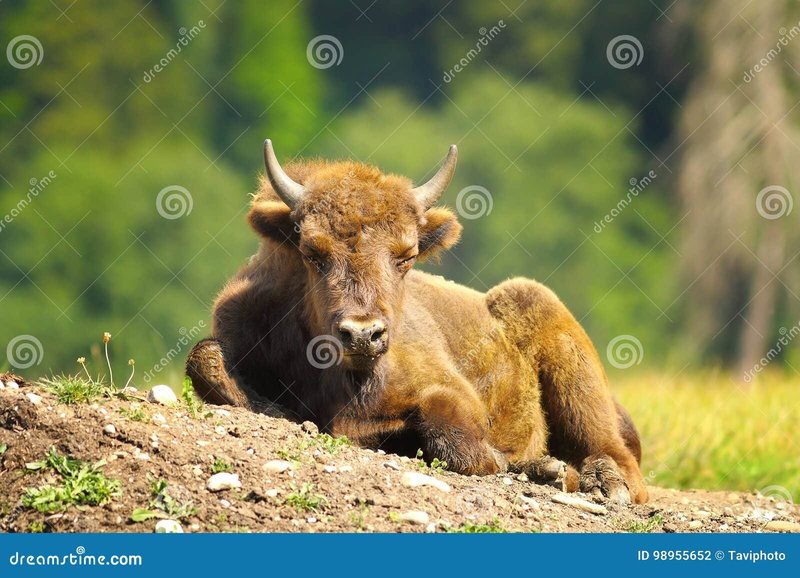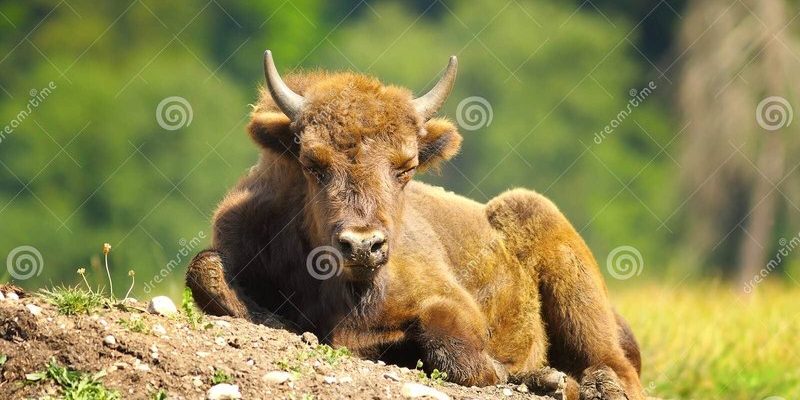
Let’s dive into the world of the European bison to unravel just how smart they really are. From their social structures to their ability to adapt to the environment, there’s much more to these gentle giants than meets the eye. So, grab a comfy seat, and let’s explore their cognitive abilities and behavior together.
The Social Structure of European Bison
European bison live in herds that can really show us their intelligence. These herds aren’t just random groups; they often consist of family units. Mothers usually stay with their offspring for several years, teaching them essential survival skills. This close-knit structure is vital, as it provides protection and support. The bison communicate with each other through a variety of vocalizations and body language, helping them maintain harmony within the group.
You might be wondering how this ties into intelligence. Well, animals that live in social groups typically exhibit higher cognitive functions. Just think about it: to thrive in a herd, a bison has to understand relationships, establish dominance, and collaborate for foraging. It’s like a mini society where every member plays a role, showcasing their ability to navigate complex social cues.
Problem-Solving Skills of European Bison
Now, let’s talk about problem-solving, which is a classic indicator of intelligence. European bison are known to display considerable adaptability when it comes to their environment. For instance, when faced with obstacles like fences or barriers, they can assess the situation and figure out how to get around or over them. This isn’t just instinct; it shows they can analyze their surroundings.
There have been instances where bison have worked together to overcome challenges. If one bison discovers a way to access food or water, the others often follow suit. This type of cooperation not only ensures their survival but also highlights their ability to learn from one another. It’s like a group of friends figuring out a way to get into a concert that’s sold out—thinking outside the box!
Memory and Navigation Skills
Memory plays a significant role in how European bison manage their lives. They possess impressive spatial memory, which allows them to remember the locations of water sources, food patches, and even routes taken during migrations. Picture a bison who knows exactly where to find the best grazing spots even after months apart. This ability to remember details helps them survive in the wild where resources can be scarce.
Scientists suggest that this memory isn’t just about survival; it also indicates cognitive complexity. For instance, a bison can assess past experiences to make better decisions in the future. If they remember a particular area led to danger, they’re likely to avoid it. This kind of learning and memory retention shows a depth of intelligence that goes beyond simple instinctual behavior.
Emotional Intelligence in Bison
Here’s the thing: intelligence isn’t just about how smart animals are in solving problems or remembering paths; it also involves emotions. European bison exhibit signs of emotional intelligence through their social interactions. They can show empathy towards fellow herd members, particularly during stressful times. If a bison is hurt or distressed, others may come to its aid, displaying a level of compassion that’s quite remarkable.
Additionally, bison form strong bonds with each other. When a member of the herd is lost, the remaining bison often engage in behaviors that suggest they are searching for their friend. This not only shows their emotional connections but also highlights their ability to understand and react to the feelings of others. It’s heartwarming to see such a sense of community among these animals.
Adaptation to Environmental Challenges
Intelligence also shines through how animals adapt to their environment. European bison are remarkable creatures that have adjusted to various habitats across Europe. From dense forests to open grasslands, these bison have learned to thrive in different ecosystems. Their thick fur keeps them warm in cold climates, while their strong bodies enable them to traverse difficult terrains.
Furthermore, their ability to adapt their foraging habits based on seasonal changes demonstrates their resourcefulness. In winter, when food is scarce, bison can dig through snow to reach grass beneath. This adaptability not only aids in survival but also illustrates their smart decision-making skills. Just like us, they need to think on their feet and make the best of what they have.
So, how smart are European bison? The evidence suggests they’re much more than just big grazers. From their complex social behaviors to their impressive problem-solving skills and emotional intelligence, these animals show a depth of cognitive ability that’s truly intriguing. Next time you think about intelligence in the animal kingdom, don’t forget to consider our gentle giant, the European bison. They might not be the first animals that come to mind, but their interconnected world and thoughtful behaviors reveal a surprising level of intelligence.
Ultimately, understanding the cognitive abilities of European bison helps us appreciate not only these magnificent creatures but also the importance of conserving their habitats. By recognizing their intelligence and emotional depth, we can foster a greater respect for wildlife and the intricate ecosystems they inhabit.

